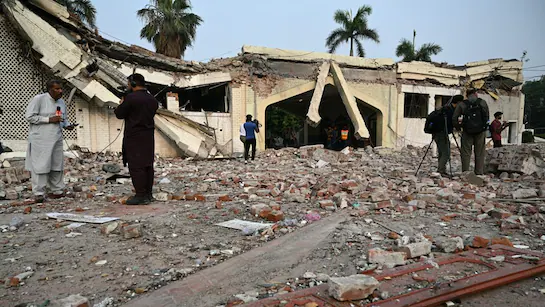In a significant escalation of military engagement following the April 22 terror attack in Pahalgam that resulted in the loss of 26 lives, the Government of India has initiated Operation Sindoor, targeting terror infrastructure linked to Pakistan and Pakistan-occupied Jammu and Kashmir (PoJK). This operation epitomizes a resolute stance on national security and marks one of the most notable military responses between India and Pakistan in recent years.
Prime Minister Narendra Modi has positioned the operation as a definitive message to adversaries. In a briefing on May 7, officials disclosed that nine targeted locations associated with the militant group Lashkar-e-Taiba, which has been blamed for the Pahalgam attack, were struck via coordinated drone and missile assaults.
The Indian Air Force, along with other defense services, effectively neutralized critical Pakistani air defense systems, particularly in sensitive regions such as Lahore. This military action followed weeks of cross-border shelling, which resulted in the tragic deaths of 16 civilians on the Indian side, including vulnerable women and children.
In addition to military responses, India has adopted a series of diplomatic measures aimed at pressuring Islamabad. These measures include the expulsion of Pakistani military attaches, the suspension of the Indus Waters Treaty, and the closure of the Attari land border crossing. An all-party meeting convened on May 8 further illustrates the government’s intent to build political consensus around its security strategy.
The public response, particularly from families of the victims of the Pahalgam attack, has largely favored the government’s aggressive approach. “This operation has restored dignity to the lives lost,” remarked Rajesh Narwal, the father of an Indian Navy officer who was killed in the attack, reflecting a sentiment of national pride and a demand for justice.
Further emphasizing its commitment to national security, the government is enhancing cybersecurity measures in light of confirmed cyber intrusions attributed to Pakistan Cyber Force. Defense and cybersecurity officials are actively working to bolster Indian defense networks, signaling a comprehensive approach to countering Pakistan’s provocations on multiple fronts.
Analysts observe that Operation Sindoor bears strategic parallels to the 2019 Balakot airstrikes, another high-profile initiative under Modi’s administration that underscored India’s focus on precise counter-terrorism measures. On the international stage, the situation has drawn the attention of the United States, which is advocating restraint even as Secretary of State consultations continue between the national security advisors of both nations.
While tensions remain elevated, the Indian government maintains that it is not pursuing war but is dedicated to safeguarding national sovereignty and protecting civilian lives. The blend of military precision, diplomatic resolve, and technological readiness represents a new trajectory in India’s counter-terror policy—one shaped by calculated experience and unwavering determination.







